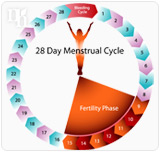
During menopause, imbalances in the estrogen, progesterone, and testosterone levels cause symptoms such as hot flashes, fatigue, headache, and vaginal dryness. Such symptoms can be uncomfortable, unpleasant and difficult to deal with. There are many different ways to try to ease or treat symptoms of menopause, and bioidentical hormones are becoming increasingly popular. Read on to discover more about bioidentical hormones, how they are produced, and their effects on menopausal symptoms.
About Bioidentical Hormones
Bioidentical hormones are plant-based hormones, usually from soybean plants or yams, extracted in a laboratory. They are structurally identical to hormones produced in the body on a molecular level. They fill in for hormones absent in the body, so are used to treat hormone imbalances, particularly those that occur during menopause. Estrogen, progesterone, and testosterone bioidentical hormones are produced, and are used according to the needs of the woman's hormonal balance.
Three Bioidentical Hormones
There are three common kinds of hormones that are produced as bioidentical hormones: estrogen, progesterone, and testosterone.
Estrogen
The term “estrogen” refers to the primary group of female sex hormones. They are produced in the ovaries, and are responsible for the development of female sexual characteristics, ovulation and menstruation. Estrogen deficiency, which can occur during menopause, can be supplemented with estrogen bioidentical hormones.
Progesterone

Progesterone is a steroid hormone that is produced by the ovaries during the menstrual cycle. Its primary function is to balance the effects of estrogen, and ensure bone growth and health, and a healthy pregnancy. Bioidentical progesterone can treat menopausal insomnia, among other symptoms, but is less used due to its associated health risks.
Testosterone
Testosterone is produced in the ovaries and adrenal glands, and is responsible for muscle growth and libido. It is thought that bioidentical testosterone can improve lost libido in menopausal women. However it can have some undesirable side effects, such as excess hair growth and mood swings.
How Are Bioidentical Hormones Administered?
Bioidentical hormones come in many forms, including creams, pills, gels, sprays, and patches. Bioidentical hormones can be obtained with or without a prescription, but it is recommended that you talk with your doctor to find out what your hormone levels are and what combination of hormones you will need.
Bioidentical hormones can be combined in compounding pharmacies, which means that the dose is created for your specific needs. In these cases, they are based on hormone levels found in a saliva test. However, a saliva test only provides information about your hormone levels at that particular moment, so it is not the best way to get an accurate picture of your hormone levels.
Bioidentical hormones are one of many treatments that can be used for the uncomfortable symptoms of menopause. However, it is important that you are aware of the associated risks before you commit to this type of therapy. Other treatments are available; it is important to find one that is right for you. Click on the following link to learn more about other alternatives to bioidentical hormones.
